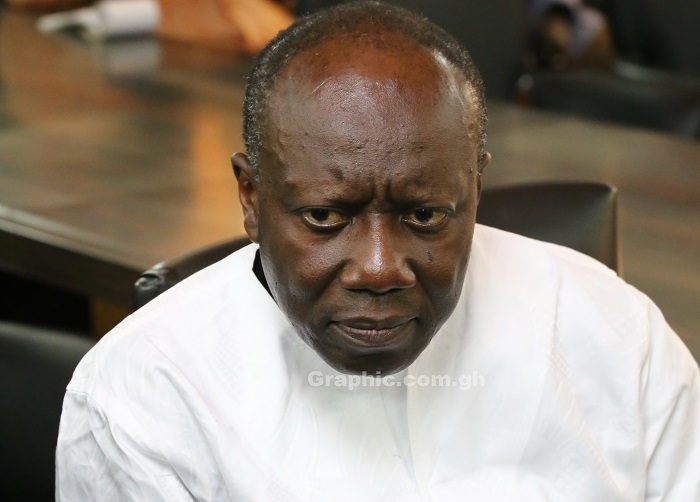The government has questioned the international credit rating agency, Moody's, recent downgrade of Ghana from B3 to Caa1 with a stable outlook on the Long-Term Issuer and Senior unsecured bond ratings.
In an official statement, it explained that the forecast and projections had been flawed with the use of inaccurate balance of payments statistics, lack of supporting quantitative analysis or data on Environmental, Social and Governance Credentials.
It also complained about the "omission" of key material information such as the 2022 Budget expenditure control measures - 2022 upfront fiscal adjustments.
The Ministry of Finance also protested the appointment of a new primary credit analyst for Ghana, only four weeks to the release of credit ratings.
"The Committee’s refusal to consider deferring such a monumental rating action until the analyst had enough time to more fully understand both the quantitative and qualitative aspects of the Ghana credit story," the statement indicated.
The Ministry noted that issues identified to warrant a downgrade had been addressed by the government with the announcement of fiscal consolidation measures, which were anchored on debt sustainability and a positive primary balance.
Moody’s in its decision to downgrade Ghana mentioned the “increasingly difficult task government faces in addressing the intertwined liquidity and debt challenges, pandemic induced revenue underperformance, tight funding conditions on international markets, materially decreasing governance and institutional strength and inflexibilities in the government budget”.
The rating agency in giving Ghana a stable outlook, however, highlighted attractive prospect over the medium term, which it said was based on balancing challenges " against the government’s pre-pandemic track record of relatively effective policy delivery and maintenance of a variety of funding sources".
The Ministry explained, "We are at odds to understand Moody’s assertion of the deterioration of Ghana’s institutional strength given Ghana’s reputation as a beacon of democracy in Africa."
It, therefore, called for reforms in the conduct of rating agencies given their ownership structure and the ramifications that their actions have on countries, especially in Africa.
"Unfortunately, it is also worthy to note that on a regional basis, there is ample evidence that Sovereigns on the African continent, in particular, have suffered more adverse rating actions than any other continent since the pandemic, despite the fact that the impact of COVID has been relatively manageable in Africa", the statement read.

